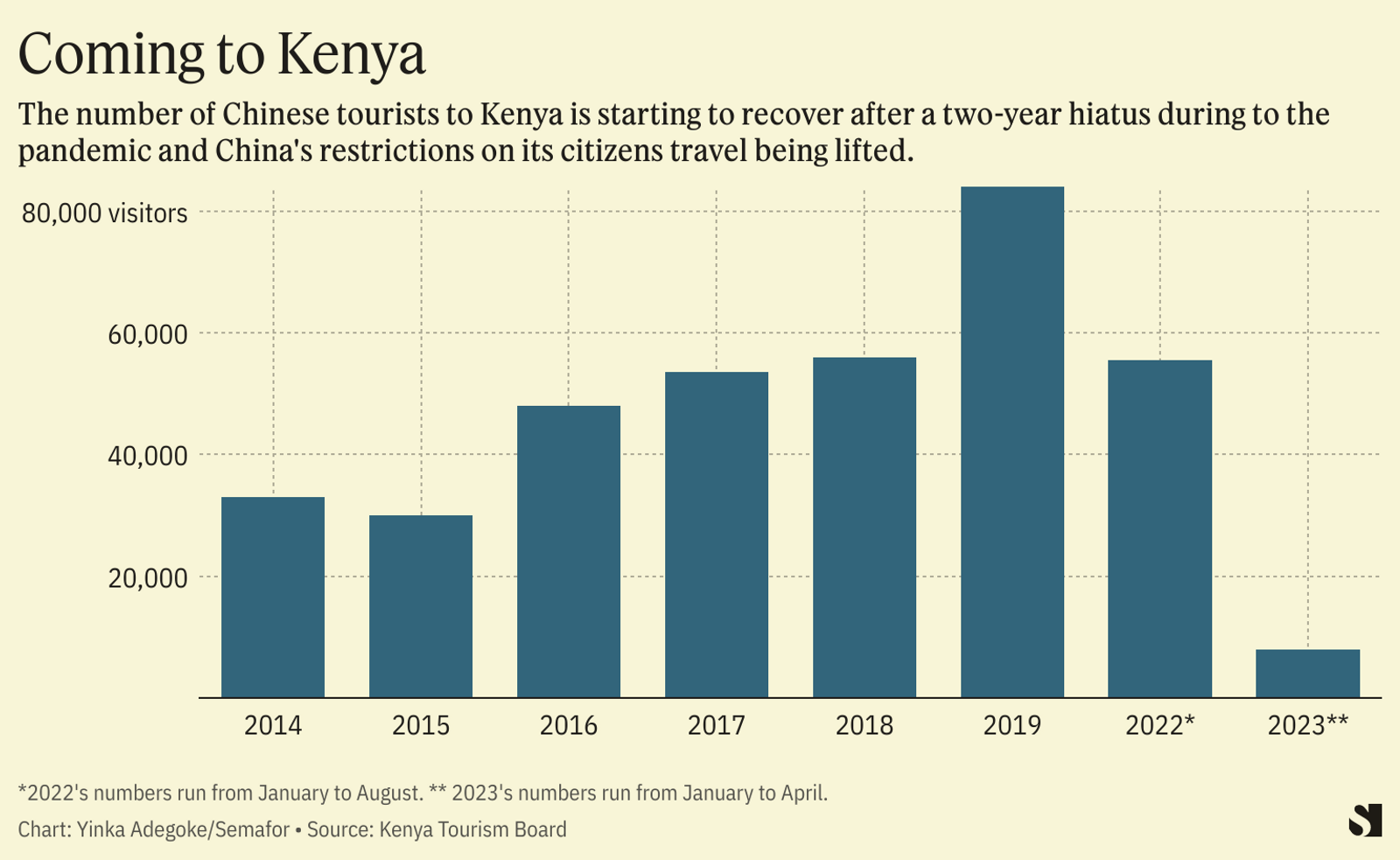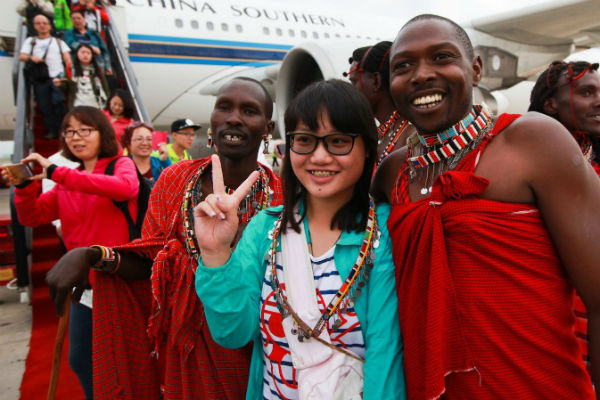Kenya, Tanzania, and South Africa are leading a charge by African countries to reinvigorate their post-pandemic tourism markets by targeting the Chinese travel market.

The three countries, along with Egypt, were among the first popular destinations for Chinese visitors after the Asian giant relaxed two-year-old pandemic rules to allow its citizens to travel for tourism in February. All three countries have been implementing long-term strategies — including resuming direct flights to China, relaxed e-visa requirements, direct marketing in China through embassies and travel agents — and investing heavily to woo Chinese tourists.
Kenya is expanding its focus to reach more Chinese tourists by marketing through travel agents, partnerships with airlines and tour operators and social media platforms, according to John Chirchir, acting chief executive of Kenya Tourism Board. There’s a particular focus on WeChat, Mafengwo, Weibo, and Douyin, the China-based sister video channel to TikTok.
Chirchir said Kenya recorded 8,000 arrivals between January and April this year compared to just under 6,000 for the same period last year.
In 2022, Kenya earned $2.13 billion in income from tourism after a surge in visitors as COVID restrictions eased around the world, according to the tourism board. The ministry has forecast Kenya could recover to 2019 tourism numbers by 2024.
Similarly, South Africa has targeted job growth with the resumption of Chinese tourist activities in the country, said Nomasonto Ndlovu, chief operations officer of South Africa Tourism. She told Semafor Africa that with additional direct flights resuming from China to Johannesburg, for example, the country projects to receive around 8,000 Chinese tourists per month later this year. This would bring it back to 2019 levels when South Africa received 94,000 visitors from China.
African tourist markets are focused on the vast Chinese markets as part of a wider effort to overcome difficult economic environments. Jobs and foreign exchange earnings have yet to recover after the global pandemic, and many countries are grappling with extended economic downturns exacerbated by the fallout from Russian invasion of Ukraine. Although tourism usually accounts for less than 10% of GDP in most of the larger African economies, aside from Tanzania (17%), it punches above its weight as a contributor to foreign exchange earnings.






